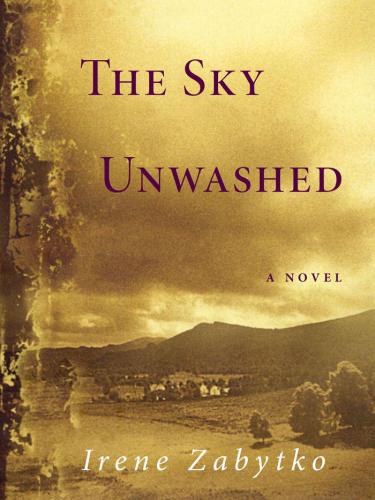
The Sky Unwashed
A Novel
کتاب های مرتبط
- اطلاعات
- نقد و بررسی
- دیدگاه کاربران
نقد و بررسی

February 28, 2000
Ukrainian-American Zabytko's poignant debut novel was inspired by the true story of villagers who defied the forced evacuation of their Ukrainian town after the nuclear accident at Chernobyl in the 1980s. The narrator is septuagenarian Marusia Petrenko, a hard-working grandmother who lives with Yurko, her only son; his wife, Zosia; and their two small children, Katia and Tarasyk, in a tiny house where only a thin curtain separates Marusia's quarters from the rest of the family's. Like many of the townspeople in Starylis, Zosia and Yurko work at the nuclear power plant in nearby Chernobyl. The drama begins one spring weekend in 1986, when several of the village's men do not return home from their shifts at the plant. One by one, the people of Starylis begin to notice a strange metallic taste in the air and to suffer from itchy, watery eyes. The official word is that there has been "a fire" at the plant, according to the militsiia who round up villagers for evacuation to Kiev. But in Kiev things are not much better. The Petrenko family is eventually separated: Marusia stays with Yurko, who is suffering from radiation sickness, and Zosia takes her children to Moscow in hopes of a better life. Over the months that follow, Marusia battles to reunite her family and to return to Starylis, which has been declared uninhabitable due to radiation. While readers may find the English transliterations of names in both Russian and Ukrainian a bit confusing (the city is Kiev on one page and Kyiv on the next, for example), this is a minor irritation in an otherwise quietly insightful novel about a indomitable individual defying the state in order to return to her home.

February 1, 2000
Zabytko's riveting first novel explores the aftermath of the 1986 nuclear explosion in Chernobyl through the lives of inhabitants of a tiny Ukranian village. Starlis is a farm town that had become, before the accident, a bedroom community for plant workers. The book follows the foced evacuation of its townspeople to unfamiliar urban centers and charts their attempt to understand what has happened. The bureancratic shuffling and callous doublespeakl that greet their queries about both the environment and the health risks they face are vividly rendered. Throughout, Zabytko - who is Ukranian American - evokes powerful impages of listless, despondent children and wheezing, red-eyed adults, but it is her portrayal of a group of ederly women who defy government dedict and return to their homes that provides the story with heart. Readers will undoubtedly be moved by thier courage, fortitude, and spirit. Although the book occasionally veers into Anit-Communist cant, it is more often poignant and inspiring. Highlt recommended for public and academic libraries. - Eleanor J. Bader, New School for Social Research, Eugene Lang Coll., Brooklyn, NY

February 15, 2000
Inspired by the events surrounding the nuclear accident at Chernobyl, Zabytko tells a story of tragedy and suffering experienced by a small Ukrainian village. In Starylis, Marusia Petrenko shares a tiny house with her son, Yurko, daughter-in-law, Zosia, and her two grandchildren. When Yurko returns home sick from working at the power plant, it is not long before the government forces the entire town onto buses headed to Moscow. While Yurko lies in a rundown hospital, Marusia, Zosia, and the children wait in the crowded hospital basement for word that they can go home. Tired of waiting, Zosia sneaks the children out of the hospital and onto a train to Siberia. After Yurko dies, Marusia defies the government and begins her journey back home to live out her remaining days. The strength of the novel lies in Zabytko's ability to capture the reality of everyday life, the horror of the fallout from a nuclear accident, and the power of the human spirit to survive. The only drawback is that the truth diminishes the fiction. ((Reviewed February 15, 2000))(Reprinted with permission of Booklist, copyright 2000, American Library Association.)

























دیدگاه کاربران